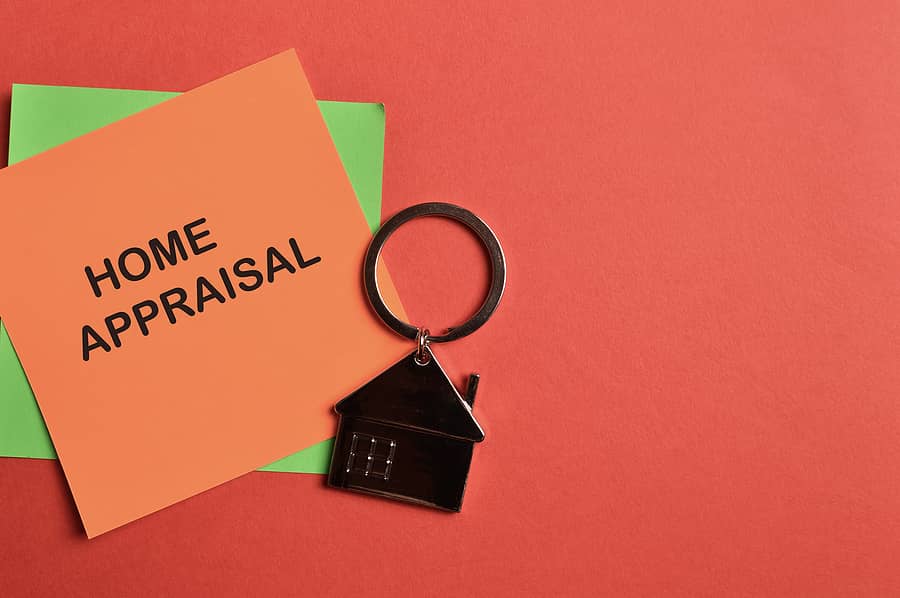As the housing market continues to outperform expectations, homeowners may be keen to tap into existing equity in their homes to help with immediate financial goals. Renovations, consolidating debts, and helping to pay primary monthly mortgage payments are just some of the possible reasons to refinance using your home as leverage. A home appraisal will be needed.
There are several variables that a lender will consider on the road to structuring a second mortgage. Existing homeowners will be required to demonstrate suitable equity in their property, preferably a low debt ratio, and Loan-to-Value will be calculated to determine the overall mortgage amount.
A lender will also assess the current appraised value of your home, which is determined by an appraisal of your property. Based on the appraisal, the terms and amount of a second mortgage can be calculated.
What Adds the Most Value to a House?
There are several ways to increase the value of your home, which will positively affect the appraised value determined by an appraiser:
- Key Renovations: Focus on renovations such as kitchen upgrades, bathroom remodels, and exterior or basement improvements. Updating these areas can significantly increase your property’s current appraised value.
- Structural Issues: Address any structural problems that need immediate attention. An appraiser will scrutinize any structural deficits that can negatively impact the final appraised value.
- Comparable Properties: Align home updates with other comparable properties in your area to add value to your property.
Keys to a Successful Refinance
When lenders are deciding to approve mortgage requests on existing property for a second mortgage, they need information on several key issues. They will ask:
- What is the current state of the property?
- Is there a need for any major renovations?
- How do the upgrades compare to similar properties in the neighbourhood?
- What is the resale value of similar properties in the area?
When refinancing, a prospective lender weighs key elements very carefully. One word that relates considerably to both the appraisal process and the ultimate decision made by a lender is any relevant comparable properties. Real estate value is directly related to location, location, location! It boils down to the desirability of the area as much as the property itself.
Appraisers will look at other properties in the same neighbourhood or surrounding area to help assess the market value of the property needing financing. By assessing other similar properties in the same location, appraisers can gather more information to determine market value. There will always be differences between properties that will affect the market value of an individual property. For example, upgrades like a new pool or significant landscaping improvements can increase the overall selling price.
What Is an Appraisal – Are There Different Types of Appraisals?
When securing second mortgage financing, one crucial task is setting up an appraisal on your property. Your lender will rely heavily on this document when deciding on the final terms of your second mortgage. The appraisal will ultimately play a central role in determining the overall amount of your mortgage loan (in addition to the Loan-to-Value ratio calculated).
It can not be stressed enough that you need to bring a recent appraisal of your property to any meeting with a lender. All Ontario-based lenders including the big banks, trust companies/credit unions, and any private lending option will be assessing this appraisal very carefully.
An appraisal can be viewed as an overall assessment of the state of your property. It is the overall process of forming an opinion of the relative value of a property. It is because every property is a unique entity that an appraisal is highly necessary. Lenders will need to approach every property differently based on its unique advantages and disadvantages.
The appraisal is essentially a piece of paper that can summarize the individual specifications of a given property. A prospective lender will rely on the findings of an appraiser. The lender will take into consideration the pros and cons of the property in question when structuring second mortgage financing. They will be asking themselves key questions:
- What is the current state of the property?
- Is there a need for any major renovations?
- How do the upgrades compare to similar properties in the neighbourhood?
- What is the resale value of similar properties in the area?
Two Types of Appraisal Reports
There are two types of appraisal reports: Form Reports and Narrative Reports.
Form Reports: The appraiser fills out a general template with all necessary information provided within the document.
Narrative Reports: The appraiser provides information in written form, clearly explaining the rationale behind their decisions.
Most Private lenders will be relying on a form report. Generally, this report type is utilized with smaller residential properties or small rental properties with no more than four units.
How to Find a Reputable Appraiser?
Just how will you choose a reputable appraiser? Just as in the case of any job that you require professional services for, be it movers for a long haul move or a plumber to fix your sink, make sure that the appraiser you choose is affiliated with a reputable association. A mortgage broker can recommend appraisers that they feel confident about.
Beyond any recommendation, it is important to know that a reputable appraiser will belong to The Appraisal Institute of Canada (AIC), which is the professional association of Canadian real estate appraisal professionals. The association currently has over five thousand members across the country.
Each province has an affiliated professional provincial association representing recognized and proven appraisers for that particular province. Ontario belongs to the AIC-Ontario chapter of the Appraisal Institute of Canada. Professional appraisers must meet the minimum professional standards set out by the AIC to be considered competent in performing the job for you.
What Does an Appraiser Look for in an Appraisal?
A lender will look for in-depth and unbiased opinions about the property in question. During the appraisal process, private lenders seek the same key information from the appraisals as other mortgage professionals. Key variables affecting the final appraised value of the property include:
- The year the property was built
- Any upgrades and any renovations that may affect the final appraised value
- Any structural problems needing immediate attention
- Any ongoing issues, such as water damage or mould
- Comparables in the surrounding area for appraisal estimates
Need Help Refinancing?
Regardless of the motivation to refinance using existing home equity, an appraisal will be a key determinant. The appraised value will affect both the second mortgage terms and the final loan amount. At Mortgage Broker Store we can help with any concerns you may have over the home appraisal process. If credit is an issue, or a high debt ratio may be serving to be a barrier to your refinancing goals, we will be able to negotiate the terms of a private second mortgage. With a network of well-established private lenders throughout Ontario, we will also be able to direct you to other private lending options to help achieve your financial objectives. Call 416-499-2122 or email ron@mortgagebrokerstore.com and gain expert advice!



